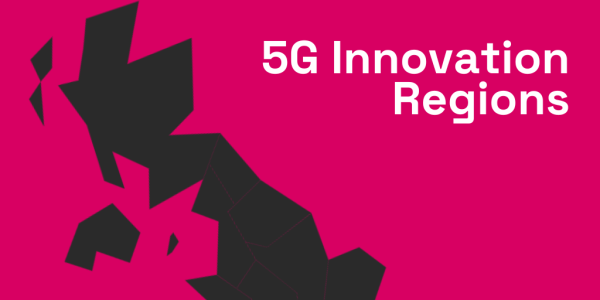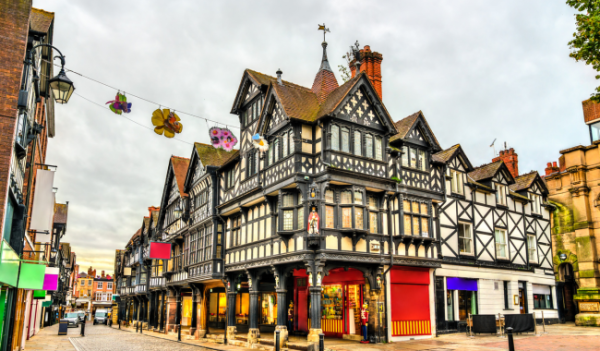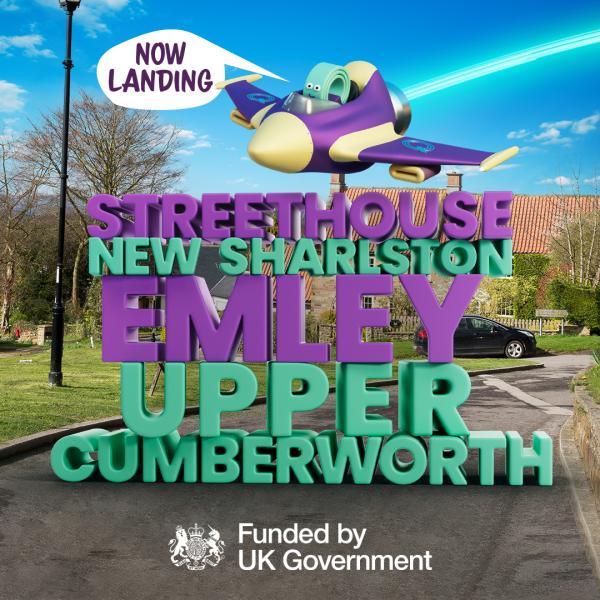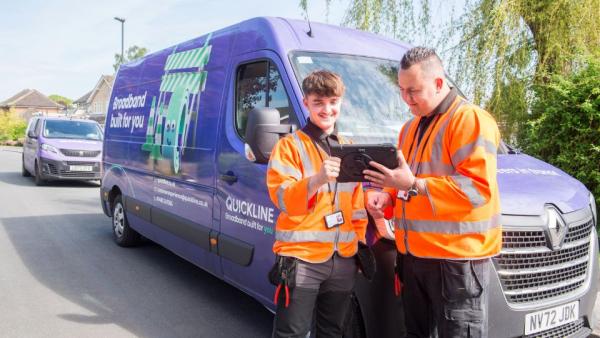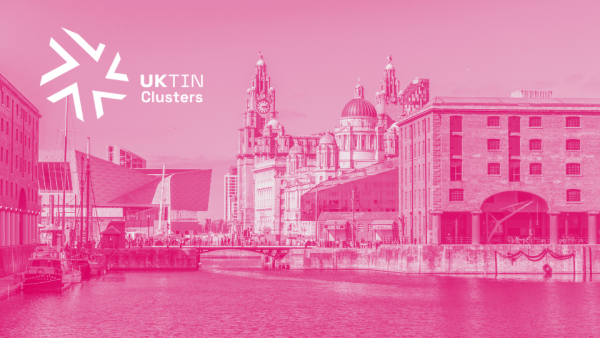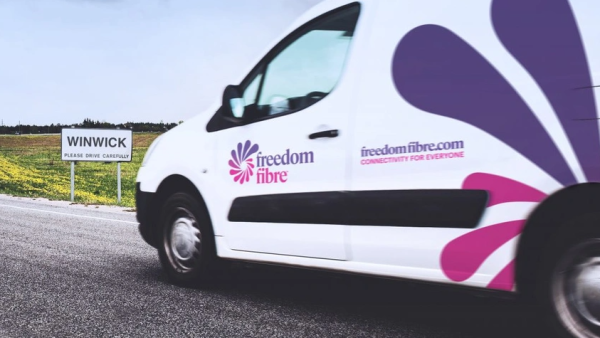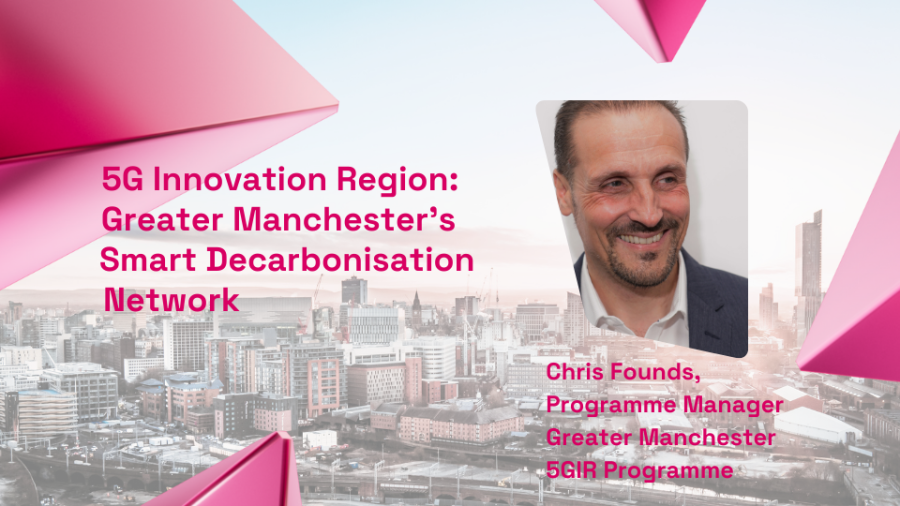
The 5G Innovation Region (5GIR) programme has seen 10 regions throughout the UK receive £36m of funding as part of our wider programme to drive 5G adoption. With a focus on key sectors where there is local capability and opportunities, the projects aim to enable the UK to take full advantage of the transformative effect that advanced wireless connectivity and digital technologies can provide.
To help ensure that all regions can benefit from the work being done by the 5G Innovation Regions, UKTIN is inviting each of the projects to present to our Clusters forum. Most recently, Chris Founds, Programme Manager for the Greater Manchester 5GIR Programme, shared his insights.
Please tell us about your 5GIR project.
Greater Manchester’s Smart Decarbonisation Network focuses on tackling the drivers of climate breakdown at a city region level, accelerating decarbonisation, improving quality of life, and growing the Green Technologies and Services sector.
Using 5G advanced wireless technology is central to our work, wrapped within an ecosystem delivered by industry and telecoms partners.
The project will use 5G to enable hundreds of existing air source heat pumps across social housing; accelerate the creation of smart energy networks and bring forward benefits for residents, industry and public services, aligning with the GM Local Area Energy Plan. In addition, we plan to pilot a 5G-enabled digital road network environment aiming to reduce congestion, and carbon emissions through prioritising traffic flow, and support active travel modes and public transport movement – taking a citizen-centric approach.
Why is the project needed?
Much of our programme is built around the GM digital blueprint and a commitment to improving lives through opportunity and well-being. We also want to use technology to make the region greener, more equal and more prosperous.
About £532 million worth of investment is going into GM tech companies, and around 95,000 people currently work in the sector. Last year, around 70,000 tech roles were advertised. That is a significant part of the ecosystem, which is expected to reach £5.5 billion by the end of 2025. We want to drive this forward, building on existing 5G foundations and leveraging assets.
What progress have you made?
We are ready to deploy on the ground, which is exciting and we have dedicated a specific section of the programme to commercialisation. There has already been a significant amount of work and progress on stacking use cases and we have around 60 people across the partners currently managing different parts of the project.
There are two main elements to the programme. The first is smart energy, which links to the local energy network and the supply companies. By creating a smart grid, we have facilitated an interesting dynamic in terms of energy demand. The next aspect is smart corridors: we’ve got two routes that link through to two of our localities, both of which include social housing. This is a great opportunity to support and manage some of our active local travel plans. We hope to reduce traffic and encourage sustainable travel.
What have you learned so far?
There is a massive amount of collaboration required. Thankfully, Greater Manchester is good at this. We have a range of partners, public bodies and facilitators. Clear governance has also been helpful: we report back to the GM Smart Places Board, and our own Programme Board and share learning and disseminate benefits through organisations such as UKTIN.
Transparency is essential for any project to be delivered. All of the partners have access to every single aspect of the documents that we require, the decisions we take and log, and the minutes we capture. We share ownership of the programme.
Head to the Greater Manchester Combined Authority website to learn more, and find out more about the UKTIN Clusters Group here (please email [email protected] for onboarding).


